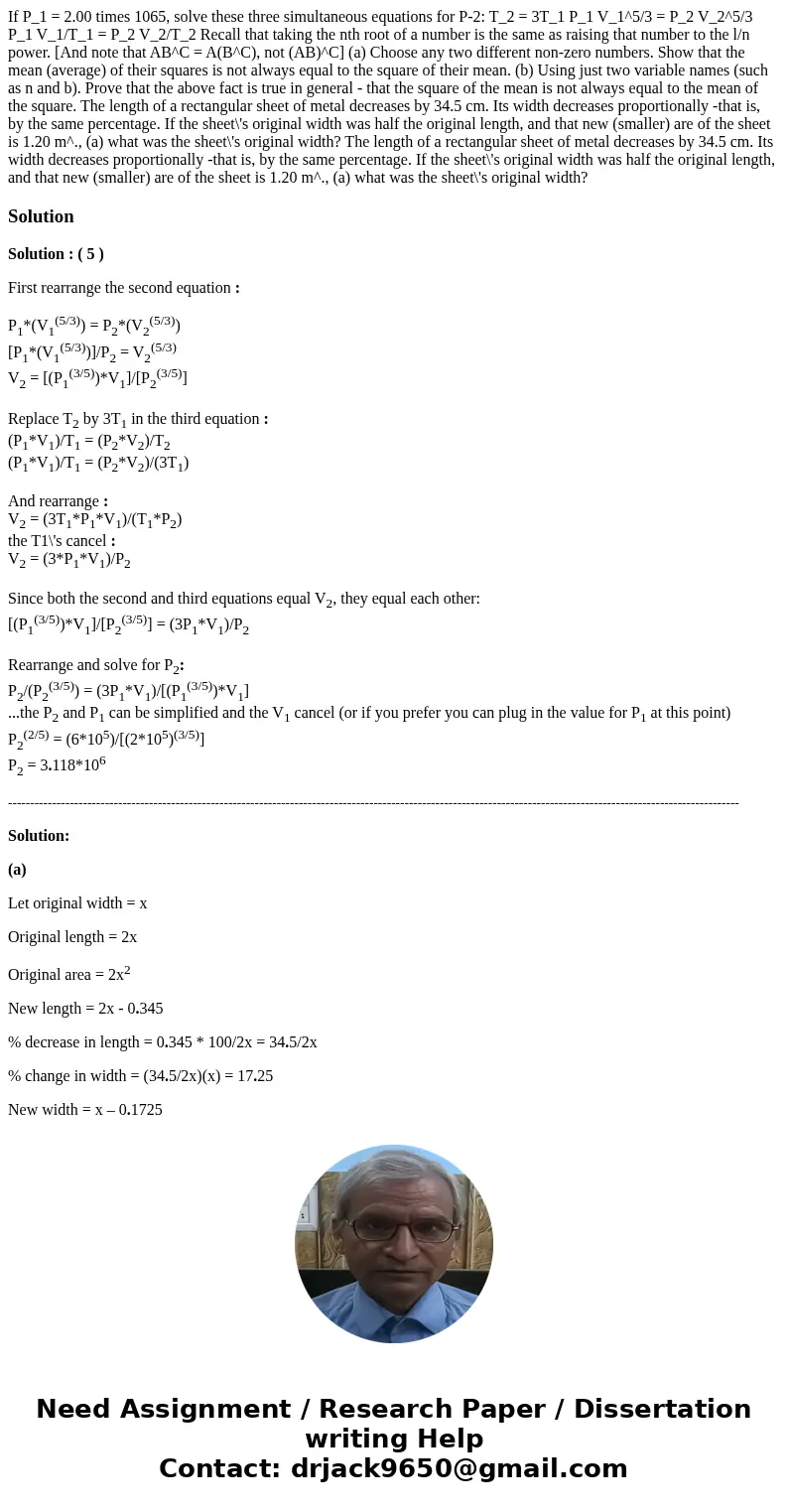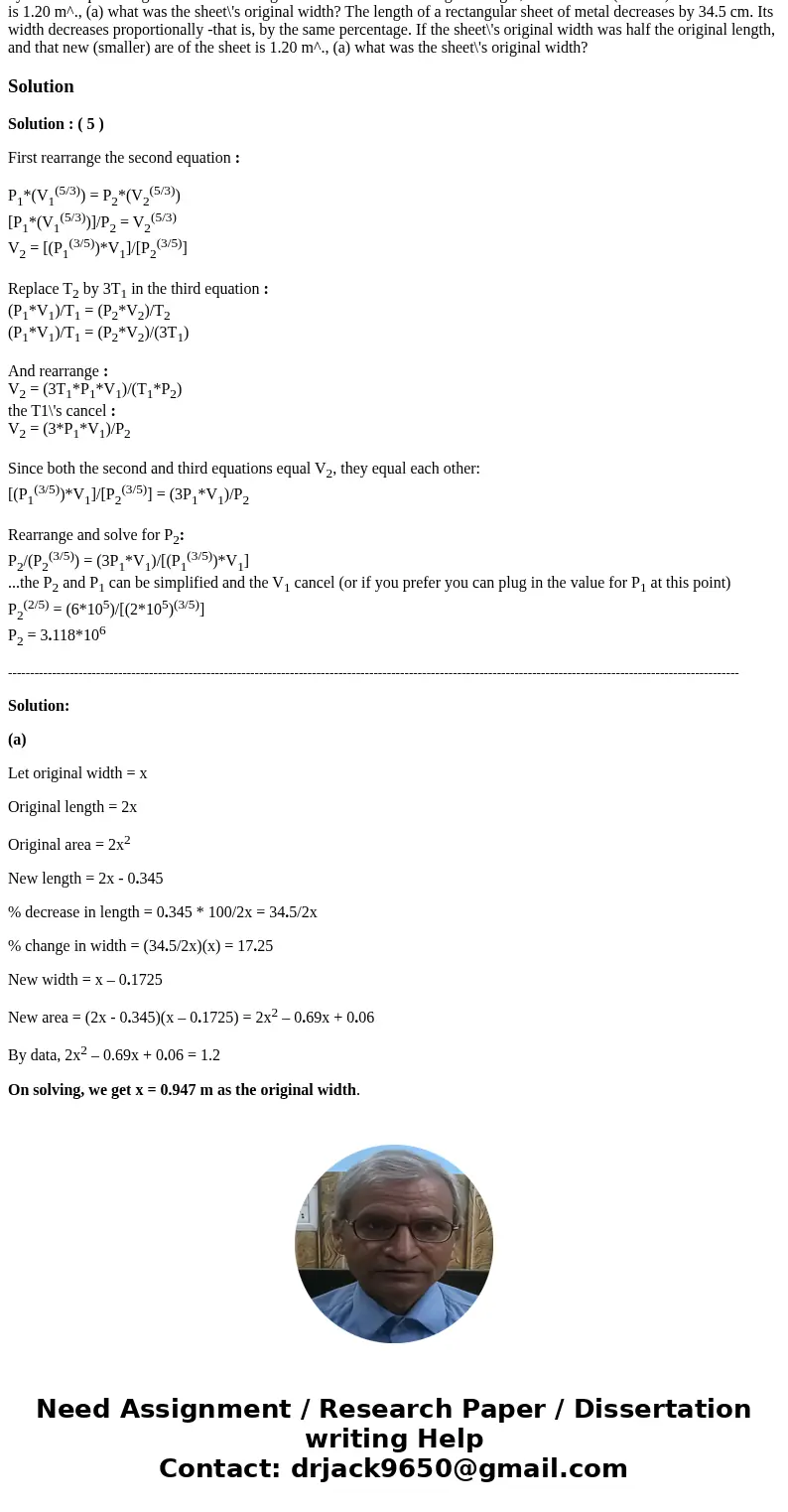If P1 200 times 1065 solve these three simultaneous equatio
Solution
Solution : ( 5 )
First rearrange the second equation :
P1*(V1(5/3)) = P2*(V2(5/3))
[P1*(V1(5/3))]/P2 = V2(5/3)
V2 = [(P1(3/5))*V1]/[P2(3/5)]
Replace T2 by 3T1 in the third equation :
(P1*V1)/T1 = (P2*V2)/T2
(P1*V1)/T1 = (P2*V2)/(3T1)
And rearrange :
V2 = (3T1*P1*V1)/(T1*P2)
the T1\'s cancel :
V2 = (3*P1*V1)/P2
Since both the second and third equations equal V2, they equal each other:
[(P1(3/5))*V1]/[P2(3/5)] = (3P1*V1)/P2
Rearrange and solve for P2:
P2/(P2(3/5)) = (3P1*V1)/[(P1(3/5))*V1]
...the P2 and P1 can be simplified and the V1 cancel (or if you prefer you can plug in the value for P1 at this point)
P2(2/5) = (6*105)/[(2*105)(3/5)]
P2 = 3.118*106
----------------------------------------------------------------------------------------------------------------------------------------------------------------------
Solution:
(a)
Let original width = x
Original length = 2x
Original area = 2x2
New length = 2x - 0.345
% decrease in length = 0.345 * 100/2x = 34.5/2x
% change in width = (34.5/2x)(x) = 17.25
New width = x – 0.1725
New area = (2x - 0.345)(x – 0.1725) = 2x2 – 0.69x + 0.06
By data, 2x2 – 0.69x + 0.06 = 1.2
On solving, we get x = 0.947 m as the original width.


 Homework Sourse
Homework Sourse